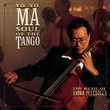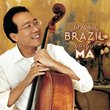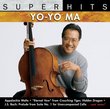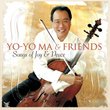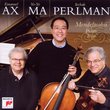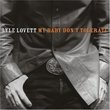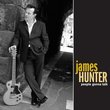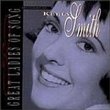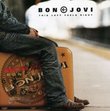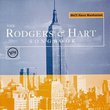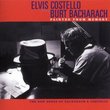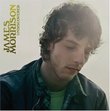| All Artists: Yo-Yo Ma Title: Paris: La Belle Epoque Members Wishing: 0 Total Copies: 1 Label: Phantom Sound & Vision Release Date: 7/1/2008 Album Type: Import Genre: Classical Styles: Forms & Genres, Concertos Number of Discs: 1 SwapaCD Credits: 1 UPC: 509970872872 |
Search - Yo-Yo Ma :: Paris: La Belle Epoque
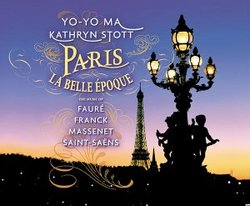 | Yo-Yo Ma Paris: La Belle Epoque Genre: Classical The cello has often been called the king of string instruments because its range encompasses all four vocal registers. Nevertheless, cellists are always complaining of the comparative paucity of their literature, and feel ... more » ![header=[] body=[This CD is available to be requested as disc only.]](/images/attributes/disc.png?v=15401716) ![header=[] body=[This CD is available to be requested with the disc and back insert.]](/images/attributes/disc_back.png?v=15401716) ![header=[] body=[This CD is available to be requested with the disc and front insert.]](/images/attributes/disc_front.png?v=15401716) ![header=[] body=[This CD is available to be requested with the disc, front and back inserts.]](/images/attributes/disc_front_back.png?v=15401716) |
Larger Image |
CD DetailsSynopsis
Amazon.com The cello has often been called the king of string instruments because its range encompasses all four vocal registers. Nevertheless, cellists are always complaining of the comparative paucity of their literature, and feel justified in raiding more fertile fields. Even Yo-Yo Ma, who has enriched the repertoire by commissioning a considerable number of new works and exploring the native music of different continents, cannot resist the temptation to engage in a little poaching. On this record, he performs four staples of the violin literature in transcriptions for cello, three of them his own. They are linked by their supposed influence on the French writer Marcel Proust and his famous novel, In Search of Lost Time, and take us to early 20th-century Paris, where Ma was born of Chinese parents five decades later. Naturally, the transcriptions do not work equally well. All retain the original keys and leave the piano parts intact; perhaps in an effort to reproduce the violin's bright tone-color, they also retain the original pitch for long stretches. This exploits the cello's "soprano" voice, but though Ma handles the stratospheric register masterfully, even he cannot make it sound natural, so it always comes as a relief when he lets his instrument sound like a real cello in its "tenor" or "bass" voice. Highlights are the Fauré A-major Sonata and the Saint-Saëns Havanaise: charming and elegant, the former is thoroughly romantic, exuberant and sunny; the latter captures the atmosphere and Spanish idiom brilliantly. You probably have to be a cellist to like the famous, nameless transcription of the Franck Sonata; the performance is a bit excessive in tempo, dynamics and rhythmic freedom. Throughout, pianist Kathryn Stott is a tower of strength and a model of empathy. --Edith Eisler Similar CDs
Similarly Requested CDs
|
Member CD ReviewsReviewed on 6/16/2021... I like cello music and Yo Yo Ma is one of the best in the world. His exploration of where the cello can go is always exciting. This was a wonderful journey.
|

